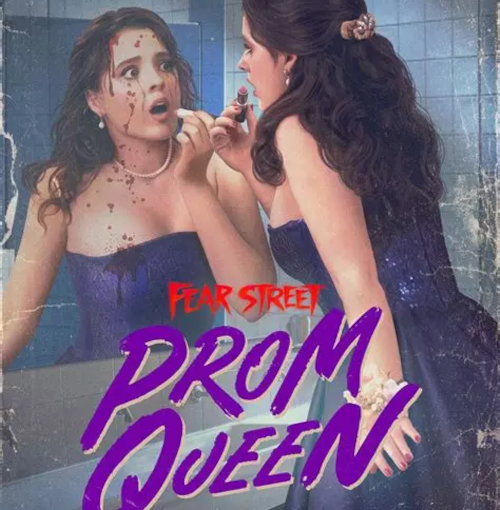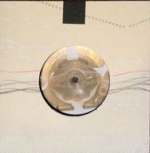I have a deal with a mate that if either of us ever manage to shout out ‘Baker Street!’ in the middle of a John Butcher performance, that person will receive a crisp £10 note and a hearty pat on the back. The irony being that, even if either of us weren’t excessively polite gig-goers, we’d still have problems remembering how to speak. Butcher’s entirely one of the most compelling performers doing the rounds at the moment, and is very much well worth catching if he’s visiting your locale.
So a couple of caveats: first, some free improv is a bastard to write about so if this goes a bit purple prose, blame the music. ALWAYS blame the music for the writer’s downfall; secondly, most people who are familiar with the scene are well aware of Butcher – he’s probably the most well-known, well-respected of the second-wave of free improvisers. So I suppose I want to pitch this less at the ‘in the know’ folk and more towards the sort of people who don’t usually dip their toes into the hardcore of free improv. Mostly this is because I can understand why some people are a bit turned off by the genre – even my mates on the noise side of the fence can get a bit fidgety at free improv things (in fact, there’s a side point about how the two genres are nowhere near as adjacent as they seem, but that’s for another time) and jazz fans, outside of the harder players, tend to perceive it in fairly derogatory ways. By my reckoning, Butcher is one of the few people in the scene (perhaps along with John Zorn, for different reasons) who can send the olive branch outside of the scene and have it legible as peace offering.Three slices from the Butcher’s knife [I’m so sorry] here, and I’ll take them in chronological order yeah? Yeah.
John Butcher (saxophones)/ Derek Bailey (guitar) / Gino Robair (energised surfaces) – Scrutables
Weight Of Wax
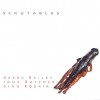 So first up with have this trio outing from March 2000 featuring his imperial majesty Derek Bailey – widely regarded by me to be the best guitarist this country ever produced – along with comparative young bucks Robair and Butcher. It’s from a world of free improv that I don’t hear so much any more, arguably when it was at its most foreboding – largely discontinuous note-to-note, lots of punchy, rhythmically a-regular punctuations and very much like a wash of sound. I’m not sure if it’s the mix or the playing, but the levels of each musician make it quite difficult to follow. I’m pretty sure it’s the music that makes it pretty tricky to describe – it’s three people simultaneously listening to each other while trying not to be repetitious.
So first up with have this trio outing from March 2000 featuring his imperial majesty Derek Bailey – widely regarded by me to be the best guitarist this country ever produced – along with comparative young bucks Robair and Butcher. It’s from a world of free improv that I don’t hear so much any more, arguably when it was at its most foreboding – largely discontinuous note-to-note, lots of punchy, rhythmically a-regular punctuations and very much like a wash of sound. I’m not sure if it’s the mix or the playing, but the levels of each musician make it quite difficult to follow. I’m pretty sure it’s the music that makes it pretty tricky to describe – it’s three people simultaneously listening to each other while trying not to be repetitious.
I know Butcher objects to ‘extended technique’ as a term but I’m at pains to find a cache-all which fits what I’m trying to describe. There’s a received narrative to well-known instruments; there’s often a complementary formalised way of playing it, and free improvisers often find devices to grind against those conceptions, to create new techniques. This recording sits in the crucible of two narratives in free improv – the old guard of playing-playing and the later style of overwhelming veteoing anything like ‘straight’ playing.
That is, of course, a bit of a misleading caprice, but let’s roll with it yeah? Yeah.
John Butcher/Rhodri Davies – Carliol
Ftarri
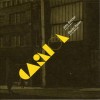 A very different proposition to the above – the game here is much less quick, much more about finding a note and squeezing its textures till it breaks. It’s also far less likely to cause friction with unsympathetic ears – parts of it could be passed off (egregiously) as slow-shifting synth warp and weal. Davies uses various harps with vibrating objects, ebows and amplified preparations to eke out a slow shifting tonal field, and Butcher delicately accentuates it with a variety of slowly-cracking pure tones.
A very different proposition to the above – the game here is much less quick, much more about finding a note and squeezing its textures till it breaks. It’s also far less likely to cause friction with unsympathetic ears – parts of it could be passed off (egregiously) as slow-shifting synth warp and weal. Davies uses various harps with vibrating objects, ebows and amplified preparations to eke out a slow shifting tonal field, and Butcher delicately accentuates it with a variety of slowly-cracking pure tones.
Attention to detail is the order of the day, and the only disappointment of this record is that the track “Scrogg” is too short – it’s a gorgeous sound from the inside of a sax over melting harp strings, with a lovely throaty breathing sound meeting collected saliva ending up warping like a fucked tape machine.
Two players at the top of their game if you ask me (which you are, implicitly, by reading, so stop complaining) but it’s very much a game of three halves and as we go roaring into the third, Butcher’s still got his best to give. The fans are going wild with anticipation. Yeah? Yeah.
John Butcher – Bell Trove Spools
Northern Spy
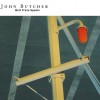 Butcher in his solo guise and it’s very much a display of quite how much he can do with the sax. It’s not the case that he’s showing off quite how many notes he can hit quickly but just the range he can get on a handful of notes. There’s a set of four tracks called “First Dart,” “Second Dart” [etc] where he establishes a pretty simple melody – nothing too taxing, nothing too clever – and develops it in a kind of horizontal fashion. Using natural harmonics, overtones, tonguing and blowing techniques with assiduous precision, the core notes ‘sound’ the same but are varied multiple times over multiple phrases. Live, it’s breath-taking and this is the first time I’ve heard it on record – it fares just as well.
Butcher in his solo guise and it’s very much a display of quite how much he can do with the sax. It’s not the case that he’s showing off quite how many notes he can hit quickly but just the range he can get on a handful of notes. There’s a set of four tracks called “First Dart,” “Second Dart” [etc] where he establishes a pretty simple melody – nothing too taxing, nothing too clever – and develops it in a kind of horizontal fashion. Using natural harmonics, overtones, tonguing and blowing techniques with assiduous precision, the core notes ‘sound’ the same but are varied multiple times over multiple phrases. Live, it’s breath-taking and this is the first time I’ve heard it on record – it fares just as well.
This also appears somewhere in Butcher’s ‘resonant spaces’ work, where he improvises based around the acoustic properties of a space. It’s a field that’s potentially quite high-minded, for audio-tech geeks, but he’s unpatronisingly gregarious in his ability to illustrate how this works. Play a note or a refrain, leave the decay and see which notes are biggest within that decay. Repeat, then do some pyrotechnics. Entirely gorgeous, and entirely approachable from the outside. That’s not to say that there aren’t the moments of screech – aptly-titled “Perfume Screech” has some of the sort of farty duck calls and bird sound upper-register playing that sound like free improv squall, but there’s never a sense that it’s abrasive or antagonistic.
Yeah, so, yeah. Basically, get yourself cleaved by the Butcher man’s sax [I’m so sorry again].
-Kev Nickells-
